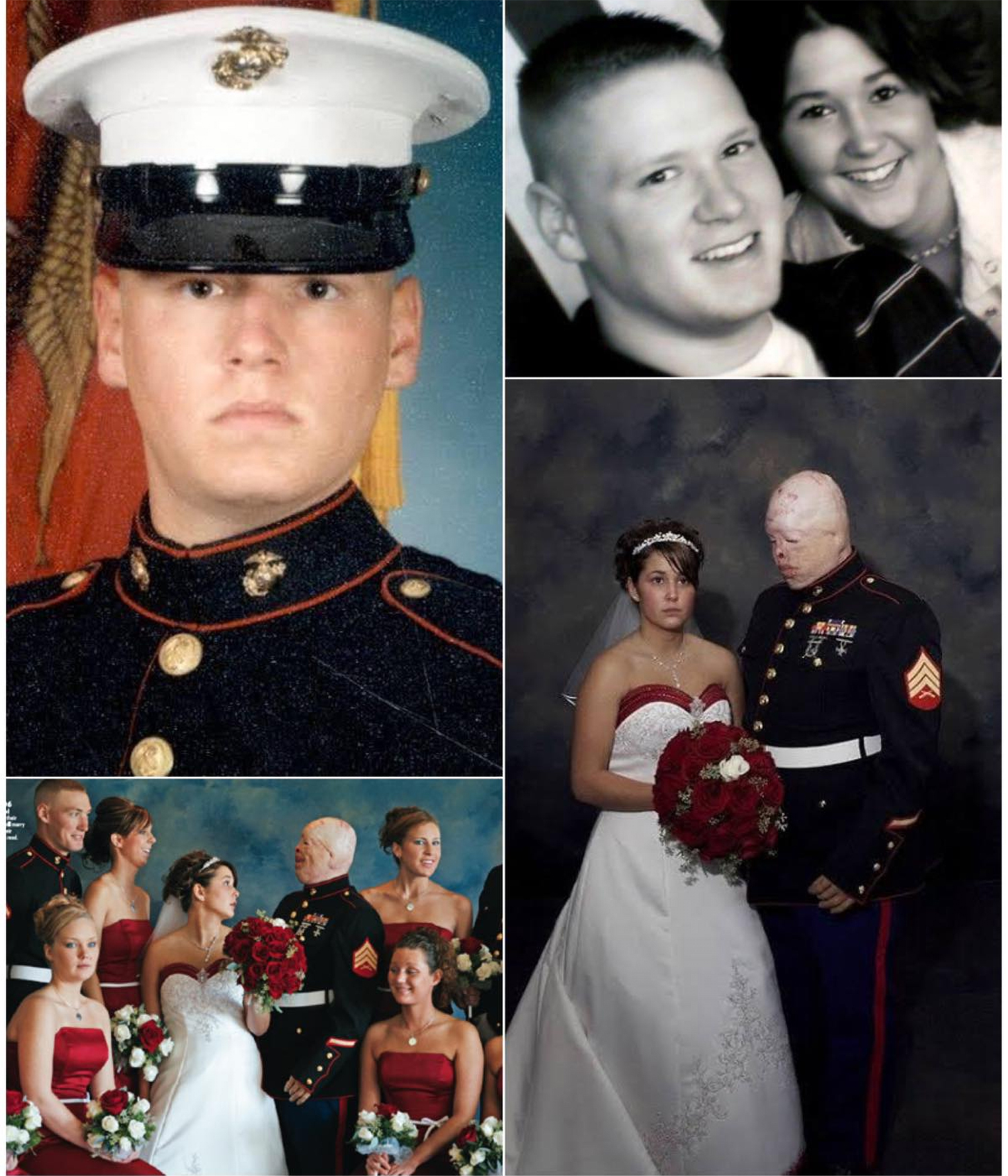The Marine Who Came Home, But Could Never Escape the War 💔

At just 24, Marine Sgt. Tyler Ziegel and his longtime love, Rene, tied the knot in a wedding that would forever mark their lives — not for its grandeur, but for the sheer courage it represented. Their love story was one of resilience, but also one of heartbreak. 💍❤️
Tyler had already endured the unimaginable. While serving in Iraq, a suicide bomber left him with catastrophic burns across his body, forever altering his physical appearance and his life. After dozens of surgeries and months of painful recovery, he returned home, but the man who walked through the door was a stranger, even to himself. Yet, Rene, who had known him before the war, stayed by his side, marrying him not out of obligation, but out of unwavering devotion. Together, they faced a new reality, where the love they shared was the only thing that seemed unchanged. 💔 But beneath the smiles, both Tyler and Rene were breaking. Rene later revealed that, despite her love for him, she often felt trapped by society’s expectations of what a “good wife” should be — afraid of being labeled as heartless if she ever considered leaving. Tyler understood. In a moment of raw honesty, he said, “I don’t blame her. War changes people.” And change it did. After a year, they parted ways, their love unable to bear the weight of the invisible scars that war had left on both of them.
But beneath the smiles, both Tyler and Rene were breaking. Rene later revealed that, despite her love for him, she often felt trapped by society’s expectations of what a “good wife” should be — afraid of being labeled as heartless if she ever considered leaving. Tyler understood. In a moment of raw honesty, he said, “I don’t blame her. War changes people.” And change it did. After a year, they parted ways, their love unable to bear the weight of the invisible scars that war had left on both of them.
Tyler spent the years after his divorce trying to raise awareness about the mental health challenges faced by soldiers, speaking out about the invisible wounds that many carry home. Yet, despite his strength, the pain continued to linger. In 2012, at just 30 years old, Tyler tragically died from an accidental overdose. 💔 Their story is not about failure, but about the impossible weight society places on love, expecting it to heal the wounds that war inflicts. Sometimes, even the strongest hearts cannot survive the emotional and psychological battles that follow the battlefield. Tyler’s life and his journey remind us that mental health should never be overlooked, and that sometimes, the scars from war are not only physical, but deeply invisible. 🕊️
Their story is not about failure, but about the impossible weight society places on love, expecting it to heal the wounds that war inflicts. Sometimes, even the strongest hearts cannot survive the emotional and psychological battles that follow the battlefield. Tyler’s life and his journey remind us that mental health should never be overlooked, and that sometimes, the scars from war are not only physical, but deeply invisible. 🕊️
Tyler Ziegel’s story is a painful reminder that while love can be a powerful force, sometimes it is not enough to heal wounds that go deeper than the skin. His life, and his tragic end, serve as a call for society to acknowledge the true cost of war — not just the physical injuries, but the emotional toll that often goes unseen. 💔











